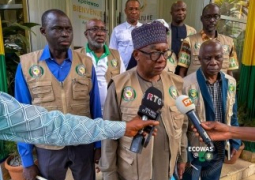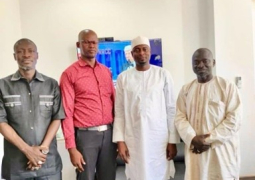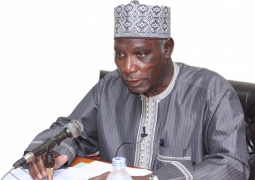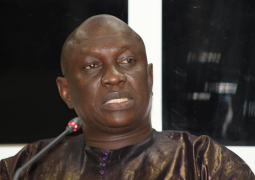The event, which will be held at the Freetown International Conference Hall will feature panel discussions on IFRS 9 for Directors, Cross-Border Settlement System, and Debt Management and Recovery, highlighting key focus areas and inviting various panelists to ensure informative talks
The key speakers are the Minister of Finance- Sheku Ahmed Fantamadi, the Governor of the Bank of Sierra Leone- Dr. Ibrahim Stevens, the President of WABA Dr. Guy Laurent Fondjo and the President of the Sierra Leone Bankers’ Association (SLACB) Dr. Walton Ekundayo Gilpin.
The programme will also feature the reporting of WABA's financial accounting, annual audit reports, annual subscriptions, and the day-to-day running of the Secretariat during the 42nd General Assembly.
As WABA continues to play a crucial role in the economic and financial integration of the ECOWAS region, it remains committed to strengthening financial institutions and promoting regional cooperation for sustainable development.
“We are delighted with the commitments we have received from the Central Bank of Sierra Leone and the Sierra Leone Association of Commercial Banks in hosting this year’s assembly in Sierra Leone,” says Alhajie Jeng, Secretary General of WABA.
Established in 1975, ECOWAS has been working towards creating an Economic and Monetary Union among its member countries. In line with this objective, the West African Monetary Agency (WAMA) was formed to facilitate trade by providing a payment mechanism for clearing and settling intra-regional transactions, as well as encouraging the use of national currencies.
WABA, comprising primary banks, development banks, credit institutions, and banking bodies in the West African sub-region, have played a significant role in supporting and promoting the West African Clearing House (WACH) to enhance intra-regional trade. Over time, it has become apparent that WABA should be independently funded and run by commercial banks.
The association's mission includes representing the banking and financial sector to various entities involved in the regional integration project, promoting professional practices of international standards, and contributing to the development and coordination of cross-border banking and financial transactions to promote intra-regional trade, economic and monetary integration, and development.
WABA's vision for 2030 is to be recognised as the Regional Banking Association with the most impact in Africa. The association upholds values such as solidarity, openness, accessibility, and sociability and aims to be the benchmark for the economy, banking, and financial sector of ECOWAS.
As a member of the ECOWAS Private Sector Group, WABA is closely involved in projects such as the creation of the single currency, the ECOWAS Regional Payments System, the system of quotation and transaction in national currencies, and the centralised credit risk database.
In addition to its role in the ECOWAS Private Sector Group, WABA undertakes its activities as a professional association, including establishing and maintaining good relations with regional or inter-regional organisations with similar objectives, promoting good corporate governance practices in banks and financial institutions in West Africa, and organising forums, training seminars, and conferences to build capacities in the economic, monetary, banking, and financial sectors.
With its dual role as a professional and political organisation, WABA aims to safeguard the interests and viewpoints of its members while serving as a channel for communication between the Commission, ECOWAS States, and the Banking and financial sector in the region.





